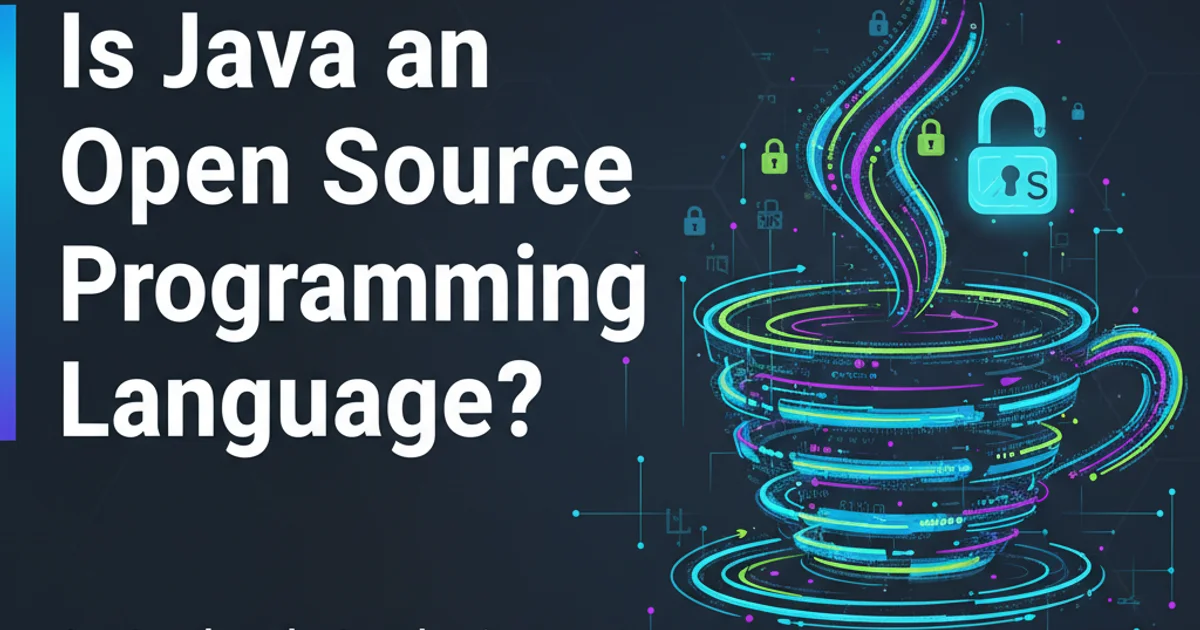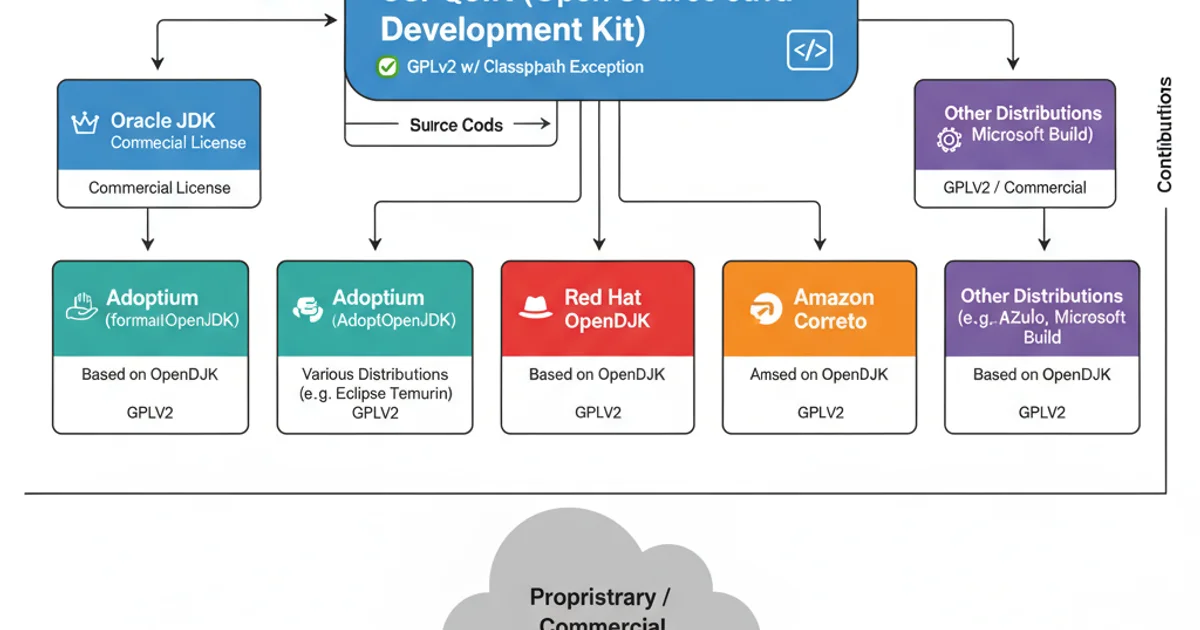Is java an open source programming language?
Categories:
Is Java an Open Source Programming Language?

Explore the open-source nature of Java, its evolution, key components, and what 'open source' truly means in the context of this widely used programming language.
The question of whether Java is open source is common, especially given its long history and various ownership changes. The short answer is: yes, Java is largely open source, but understanding the nuances requires a deeper dive into its ecosystem, licensing, and the different components that make up the Java platform.
The Evolution of Java's Open Source Status
Java was originally developed by Sun Microsystems and released in 1995. For many years, it operated under a proprietary model, though Sun did make efforts to open up parts of the platform. The significant shift towards open source began in 2006 when Sun released much of the Java platform under the GNU General Public License (GPL). This move was a game-changer, fostering a vibrant community and accelerating Java's adoption.
When Oracle acquired Sun Microsystems in 2010, concerns arose about Java's future open-source status. While Oracle continued to maintain and develop Java, they also introduced some changes, including commercial licensing for certain Java Development Kit (JDK) distributions. However, the core Java platform, particularly the OpenJDK project, remains a robust open-source effort.
flowchart TD
A[Java Creation by Sun Microsystems (1995)] --> B{Proprietary Model}
B --> C[Sun's Open Source Initiative (2006)]
C --> D[Release of OpenJDK under GPL]
D --> E[Oracle Acquires Sun (2010)]
E --> F{Continued OpenJDK Development}
F --> G[Dual Licensing Model (OpenJDK vs. Oracle JDK)]
G --> H[Java 11+ and OpenJDK as Reference Implementation]
H --> I[Widespread Open Source Adoption]Timeline of Java's Open Source Evolution
OpenJDK: The Heart of Open Source Java
OpenJDK (Open Java Development Kit) is the official open-source reference implementation of the Java SE (Standard Edition) Platform. It's a collaborative effort involving Oracle, Red Hat, SAP, IBM, and many other companies and individual developers. OpenJDK provides the source code for the Java compiler, the Java Virtual Machine (JVM), and the core Java class libraries.
Most modern JDK distributions, including Oracle's own free-to-use builds, are based on OpenJDK. This means that when you download a JDK from Adoptium (formerly AdoptOpenJDK), Amazon Corretto, Azul Zulu, or even Oracle's free OpenJDK builds, you are using a product derived from the open-source OpenJDK project. This ensures that the core Java technology remains freely available and modifiable.
public class HelloWorld {
public static void main(String[] args) {
System.out.println("Hello, Open Source Java!");
}
}
A simple Java program, compiled and run using an OpenJDK-based distribution.
Understanding 'Open Source' in the Java Context
The term 'open source' implies more than just access to source code; it also involves licensing that permits free use, modification, and distribution. OpenJDK is licensed under the GNU General Public License (GPL) version 2 with the Classpath Exception. This exception is crucial because it allows developers to link their proprietary applications with OpenJDK's class libraries without being forced to open-source their own applications.
This licensing model strikes a balance, promoting collaboration on the core platform while allowing commercial entities to build closed-source applications on top of it. It's a key reason why Java has maintained its popularity across diverse industries, from enterprise applications to mobile development (Android's core libraries are also based on Java).

The OpenJDK ecosystem and its relationship with commercial and proprietary applications.